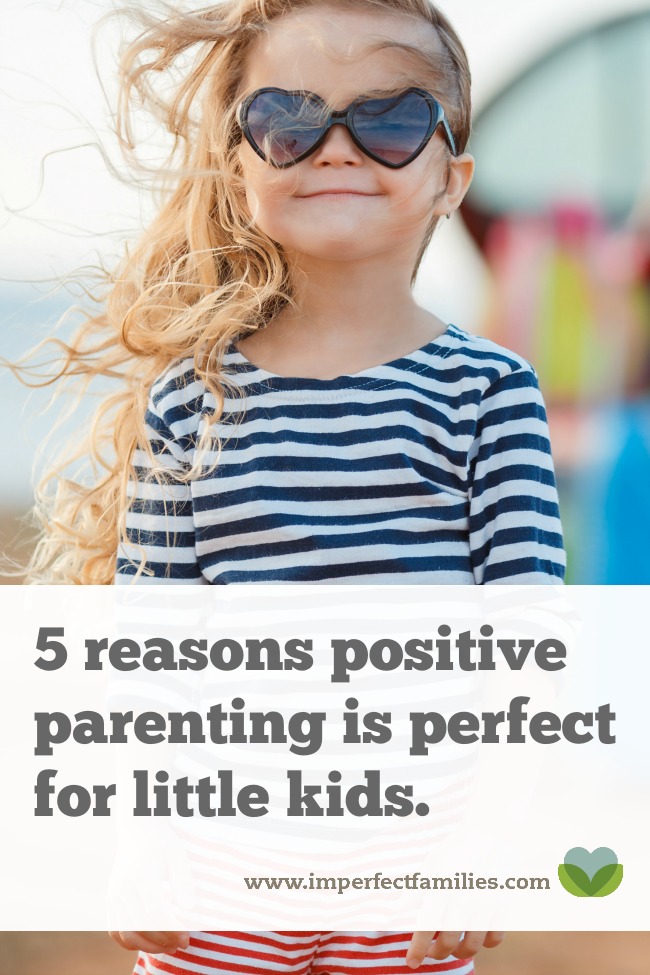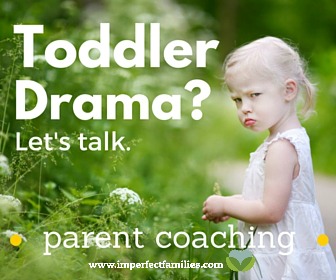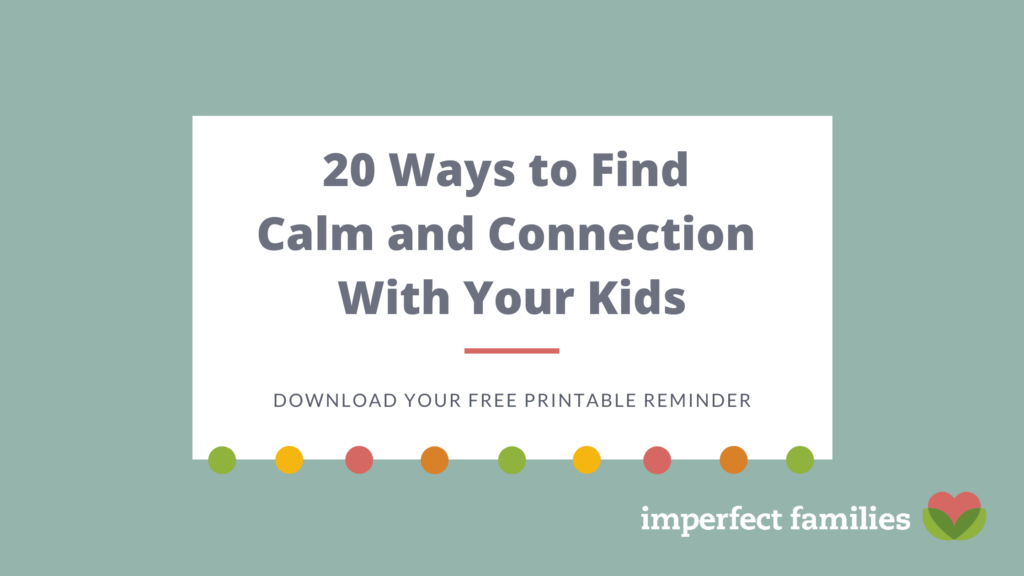Little kids don’t need harsh discipline like timeouts or threats to behave. Positive parenting for toddlers and preschoolers works – even if your kids are too young to talk! It’s not too early to set a positive, respectful foundation for parenting in your home. (And it’s not too late to make some changes to your parenting either!)

My 3-year-old was given the choice between a candy and a cookie for dessert. We went on about our night thinking everything was fine until we heard an ear piercing scream coming from the other room.
Rushing in, we expected to see someone hurt or injured.
Instead, we found her crumpled like a ball on the floor.
“I wanted a cookie for dessert!”
Taken aback, I realized that the crying was not a physical emergency, but an emotional one.
“You had a piece of candy instead, huh?” I said, trying to mentally sort through the problem in my brain.
“Yes, but I really wanted a cookie!”
Oh my, what a dilemma.
Can you relate to this conversation?
Maybe you’ve had this same discussion with your little one.
Maybe you sent them to timeout or gave them a lengthy lecture about dessert being a privilege. Or maybe you gave in, tired of the fight, but resentful because you felt manipulated by a 3-year-old.
Thankfully, there are alternatives. Options that leave you feeling confident and connected to your child.
Positive parenting is effective for young children. Even kids who are just learning to walk. Or kids who are still working on their verbal skills.
5 benefits of using positive parenting for toddlers and preschoolers:
- Sets a foundation for respectful communication in the future. Your child may not have much of a vocabulary now, but they will be talking soon. And, just because your child knows how to talk, doesn’t mean they know how to have a respectful disagreement. Modeling good communication and healthy problem solving from a young age gives them an example to follow as they grow and mature.
- Allows your child to feel unconditionally loved and supported. Timeouts and other forms of punishment send the message “you are only loved when you are good” or “you are only allowed to be here when you are calm.” Sitting with your kids through their big feelings sends the message, “I love you no matter what.”
- Opportunities to learn the words that describe their thoughts, feelings, and physical sensations. Responding empathetically when your little one is struggling normalizes their experience. It helps them make the connection between what they feel in their body and experience in their environment and the words to explain it to others. (Even if this ability to explain doesn’t happen until years later.)
- Practice working through tricky social situations. Playing, sharing, and taking turns don’t come naturally for most young kids. It’s normal for them to struggle in these situations. Taking time to come alongside your child, giving them support, words, and guidance can ease their anxiety and help them navigate difficult social interactions without resorting to hitting, biting, or throwing toys.
- Realizing that big feelings are not forever. Screaming and pulling another child’s hair seems dramatic from the outside, but it can also be traumatic for the child who’s upset! Thankfully, staying close to your child, even in these tense moments, gives them confidence that they can eventually return to calm – both internally and externally.
The crying continued as my daughter climbed into my lap. No amount of rationalizing or reasoning was going to make this better, so I stayed fairly quiet.
“I’m still hungry! I need a cookie! I didn’t want candy, I wanted a cookie!” (Ah, the laments of a 3-year-old.)
“You regret your decision.”
“Uh-huh.”
“There are good things about candy and good things about cookies. They are both delicious, right?”
“Yes, I need a cookie too!”
At this point, things could have gone a number of different directions, I could have lectured about sugar, I could have rationalized away her feelings, or I could have given in. Instead, I decided to empathetically stick with the sweet-limit for the night. “You made a choice to have candy, that was a yummy decision. Now you’re sad about the cookie. Would you like to set a cookie in a special place and eat it tomorrow?”
She agreed and eagerly got a small bowl for her cookie.
The emotions didn’t disappear immediately, she was still very upset about her choice and still shed some tears.
The next day, when faced with a dessert choice, she eagerly replied, “I have a cookie set aside for dessert tonight!”
If you’re ready to get started using positive parenting with your toddler or preschooler (or want to brush up on your skills) here are some posts to get you started:
Being Curious About Misbehavior
25 Things that Impact Your Child’s Behavior
Need more support?
Parenting toddlers and preschoolers can be tricky, especially as they learn to navigate the world and improve their language skills. If you’re baffled by your child’s behavior or just want more direction as you implement these strategies, I’d love to be a support for you! We will talk through your specific challenges and explore solutions that will ease the stress and help you confidently parent through the toddler an preschool years. Schedule an online parent coaching session today!




Comments have been turned off to retain the privacy of all families. If you have a question or comment on the topic, you're always welcome to contact me.